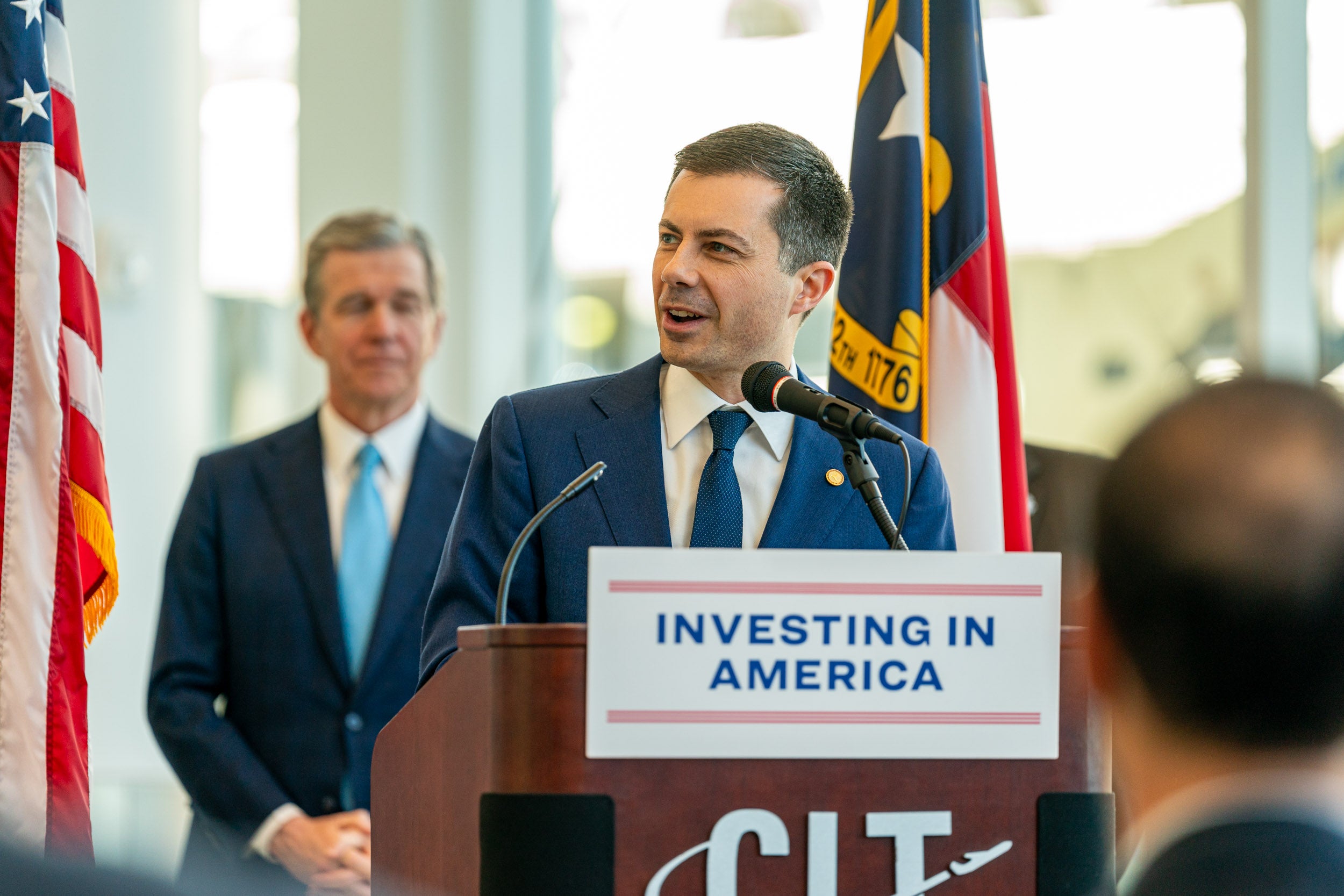It has been a remarkable few years of changes in the travel landscape. We saw a dramatic surge in travel demand after the peak of the coronavirus pandemic, and there appears to be no letup in sight.
Flights remain full and expensive, with travelers growing increasingly interested in booking trips to international and more remote destinations.
Our travel habits have changed, too: They are shaped by changing global trends, driven by FOMO thanks to social media and even influenced by the strength of the U.S. dollar. Toss in climate change, concerns about overtourism, fluctuating prices, loyalty program devaluations and increased ancillary fees, and it’s clear that a lot is happening in the travel space.
Of course, one thing hasn’t changed a bit. Our collective desire to connect with others remains even more powerful and our love for travel has grown even stronger.
Here are the top trends TPG is seeing across the industry — and what they mean for travelers in 2025.
Check out all of the details on TPG’s 2025 Travel Trends page.
Expect to spend more on travel in 2025
People are spending more on travel than they did before the pandemic, and it’s not necessarily purely due to higher airfare and hotel prices.
It’s true that compared to 2019, hotel prices have increased more than 10%, recreation costs are up 19% and the cost of food and beverage is up 29%. The only travel expense to decline in the past five years is the price of an airline ticket, down more than 6%. But year over year, both airfare and hotel prices are down.
Where travelers are spending more on trips
The flood of TikTok and Instagram travel influencers is fueling the desire, especially among younger generations, for international travel. Younger generations are more likely to take longer trips to overseas destinations, which generally cost more than domestic trips.
Daily Newsletter
Reward your inbox with the TPG Daily newsletter
Join over 700,000 readers for breaking news, in-depth guides and exclusive deals from TPG’s experts
People are also taking longer vacations — 5 1/2 days on average in 2024 versus 4 1/2 days in 2020. International destinations remain popular as well, and travelers are contributing massive amounts of revenue to the economies of the countries they visit.
According to the World Travel & Tourism Council, the U.S. remains the most powerful travel and tourism market, with international spending contributing $2.36 trillion to the American economy. The top five nations in travel and tourism revenue (in U.S. dollars) are:
1. U.S. ($2.36 trillion)
2. China ($1.3 trillion)
3. Germany ($487.6 billion)
4. Japan ($297 billion)
5. U.K. ($295.2 billion)
Despite the expected increase in travel costs, 66% of the people TPG surveyed are more interested in travel than they used to be. The desire to travel and see the world hasn’t waned, but what people prioritize when booking these trips is shifting.
Read more: What will travelers spend more money on in 2024
Travelers are craving shared experiences
Today’s travelers are more interested in paying for experiences on the ground than in using cash to pay for luxury flights and accommodations. That trend is poised to carry into 2025.
Millennials and members of Generation Z say they prefer to save money on airfare to have more to spend on the experiential aspects of their vacation. In fact, 47% of Gen Z is planning travel around a specific event.
We saw this play out across 2024 as tens of thousands of people booked trips in the U.S. and around the world to see Taylor Swift in concert. According to Expedia, Indianapolis and New Orleans were its fastest-growing domestic destinations in the fall of 2024. Searches were up 120% and 40%, respectively, driven by the concert dates on “The Eras Tour” in those cities.
Of course, it’s not just Taylor Swift. Domestic and international concert tours featuring superstars like Madonna and Bruce Springsteen generated great travel demand, as did music festivals like Coachella and SXSW.
People didn’t just travel for concerts, either. The total solar eclipse in April inspired numerous people to travel, as did the annual Carnival celebration in Brazil. The Summer Olympics in Paris was a magnet for visitors from around the world. Baseball fans traveled to see this year’s World Series featuring the New York Yankees and the Los Angeles Dodgers in two perennially popular U.S. destination cities.
Major events in 2025, such as Carnival and reunited 90s rock band Oasis’ tour, are sure to be similar drivers of increased demand and local economic impact.
What does this mean for 2025 travelers? Increased demand leads to sold-out accommodations and sky-high prices, so if you are planning a trip to see your favorite band or a special event, book it early.
Read more: Travelers are craving togetherness and shared experiences
The challenge of using points and miles
We love stockpiling points and miles, but the reality is that they are becoming less valuable and harder to use. Many airline redemption programs experienced significant price hikes in 2024.
British Airways raised its domestic Avios redemptions on American Airlines and Alaska Airlines flights by 35% in main cabin economy and 39% in first class, on average. In August, Avianca LifeMiles increased the redemptions for all flights to Europe by as much as 50% without warning.
On top of that, playing the elite status game is getting more complicated. Gone are the days of just flying or booking hotel stays to earn status. You can now earn elite status on all of the major U.S. airlines without stepping foot on a plane — you just need to have the right cobranded airline card and meet the spending thresholds. There are several credit cards that offer automatic elite status with certain hotel brands, too.
However, cardholders should expect to spend significant amounts on their cards to reap these benefits.
But travelers shouldn’t abandon the points and miles game
Despite the loyalty industry’s challenges, savvy points travelers can get a lot of value out of their wallet — with the right strategy.
It looks like 2025 is the year to get serious about cohesive loyalty rewards and credit card strategy. For most casual travelers, elite status probably isn’t worth chasing. Instead, they could get similar benefits by simply having the right credit cards or booking through the right programs (such as Amex’s Fine Hotels + Resorts).
It’s a good time to reevaluate the credit cards in your wallet and figure out the best travel cards for your lifestyle. Annual fees for many cards have increased. The American Express® Gold Card‘s annual fee increased by 30%, from $250 to $325, in 2024 (see rates and fees). The annual fees on Amex’s Delta Air Lines cobranded cards rose by as much as 52%. As these travel rewards cards become more expensive, you have to evaluate whether the value of the card and its associated perks are worth it.
Read more: 2025’s points and miles challenges
2025 travel plans and overtourism
Everyone wants the perfect Instagram picture from Venice, Italy, but that photo-op comes with a hidden price: big crowds that strain local resources. The negative effects of overtourism aren’t new, but there has been a recent backlash against tourism in some countries by both local governments and residents. In Spain, antitourism protests earlier this year made headlines. Barcelona, the country’s most visited city, increased its tourism tax this year in response to the onslaught of visitors.
A few of the places that have added or increased tourist taxes or entry fees this year include:
- Amsterdam
- Venice
- Bali
- Galapagos National Park
U.S. cities like Atlanta, New York City and Maui have already put restrictions in place for short-term vacation rentals. Local governments in popular cruise ports are discussing limits on the number of ships and passengers they let in. Greece has proposed adding a tourist tax on cruise ship visitors, as well as placing a cap on the number of cruise ships that visit popular destinations like Santorini and Mykonos.
Expect to see more popular vacation destinations follow suit with increased entry fees or tourism regulations. This is an effort to strike a balance between the economic benefits of tourism and its impact on local resources and the environment.
Read more: What the fight against overtourism means for the travelers in 2025
The impact of climate change on travel
Summers are getting hotter, and weather patterns are becoming more erratic. In response, travelers are changing where and when they travel. That means heading to cooler climates during the peak summer travel season and enjoying an expanded shoulder season in spots that now feel the heat earlier and longer than ever due to the planet’s changing climate.
According to the European Union’s climate change monitoring service, 2024 marked the warmest Northern Hemisphere summer since records began. The Adriatic Sea reached its highest-ever recorded temperature (86 degrees Fahrenheit) in July 2024 near Dubrovnik, Croatia. Rising temperatures increase the risk of wildfires, such as the ones that devastated Maui and Greece in 2023.
As traditional summer season vacation hot spots get hotter and more crowded, travelers are redefining what a summer vacation actually means. They are seeking relief in the form of “coolcations” — heading to cooler destinations in northern Europe, such as Finland.
Those who are set on certain destinations are shifting to expanded shoulder seasons that provide some relief from the heat (and summertime crowds). Delta, American and United collectively flew nearly 13% more seats to Europe during shoulder season (September and October) in 2024 than they did five years ago. Southern European countries like Italy and Portugal saw increases of more than 50% in that same five-year period.
Read more: Climate change is affecting travel decisions (whether travelers realize it or not)
Government regulations on travel
There could be some big changes in the regulatory environment for the airlines in 2025.
So-called “junk fees” made big news at the end of 2024, when the Senate Permanent Subcommittee on Investigations grilled five top airline executives in a contentious hearing. Despite headlines, though, the current Senate isn’t poised to do much about it. Also, the new Republican-controlled Senate will not likely take this issue up as aggressively.
In fact, ancillary fees, unbundled fares and price transparency were major issues for the Biden administration in the past several years. New rules from the U.S. Department of Transportation require quick refunds if passengers’ flights have long delays or cancellations and they don’t end up taking the trip. The DOT has also now required airlines to be more fair to families, and airlines must seat children with their parents for free.
But other efforts have been stymied by lawsuits from the major airlines. The courts have blocked DOT rules around fare transparency. The government also launched an investigation into frequent flyer programs, but airlines seem pretty sure that will go away in 2025. A brand-new rule that would require airlines to compensate passengers for long delays or cancellations with at least $200 is now open to public comment.That, too, could go away under a new administration.
Of course, not all government proposals are necessarily good for consumers. TPG has taken a strong stand against the Credit Card Competition Act, which could gut frequent flyer rewards. The good news is that it doesn’t look any closer to becoming a reality, for now.
But we do agree government pressure has led to positive changes for consumers.
As a new administration prepares to take office in 2025, remember that you have a lot of power. If you stop using certain companies, spending on airline credit cards or staying at hotels that charge resort fees, that pressure can lead to better policies from airlines and hotels.
Read more: Regulations shaping future of the travel industry
Bottom line
Some of these trends may spell doom and gloom at first glance, and there are certainly plenty of challenges for the industry and travelers as we head into 2025. But there is also a lot of good on the horizon.
New regulations in place should mean more money back in the hands of consumers when flight plans go wrong. Extended shoulder seasons provide flexible travelers with the opportunity to see incredible destinations during a larger stretch of the year — often with lower prices. Despite points and miles becoming harder to earn and use, there are still incredible deals out there — just look at the recent Virgin Atlantic deal that came out of its new award pricing structure. Families, friends and strangers alike are coming together to experience live music, astrological phenomena and events that celebrate the unique cultures around the world.
Travel continues to have the power to bring people together, and nothing proves that more than the excitement for travel we see heading into 2025.
Related reading:
For rates and fees of the Amex Gold Card, click here



